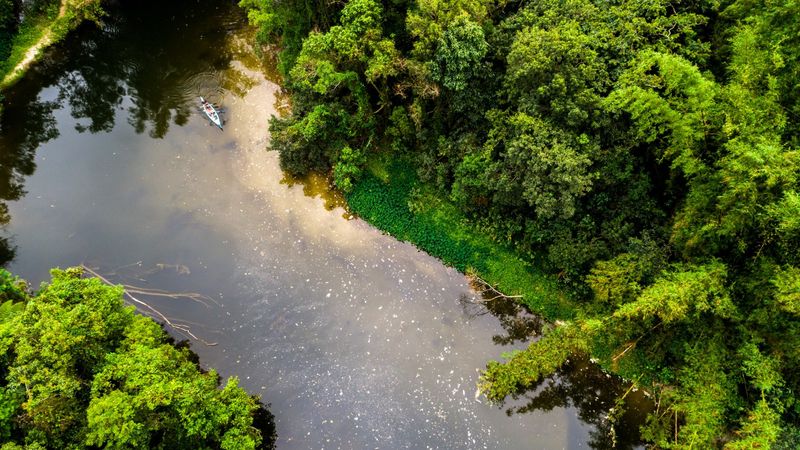Ecological credits. Reductive? Necessary? Lesser of evils? Valuable?
Regardless of which side of the fence you prefer to stand on, ReFi holds the concept of ecological credits dear. Why? They are seen as the key to unlocking individual ecological impact at scale; the instrument through which climate-negative actors can fund those doing the work to regenerate the planet.
As an example, consider the hundreds of millions of smallholder farmers around the world. The general idea is to incentivise them to leverage agroforestry, preserve tree cover, and practice polyculture by giving them the tools to issue and sell the credits representing their own verified ecological impact.
And it's worth noting that these ecological credits come in many forms, not just carbon. There's also biodiversity, water, renewable energy, and pretty much any other ecological (and social impact) activity that can be measured, reported, and verified.
With enough buyers in place, this could actually work at scale. Advances in satellite imaging, soil sensors, and AI are making remote verification viable; integration between crypto and mobile money networks is making micro-payments to farmers easier than ever. There has never been a better time for this to work.
Will it, though?
The operative word in all this is funding. Aside from needing enough buyers, there's the funding needed to build the tools, onboard the climate actors, and market the credits - something that will require monumental levels of coordination across the board. We'll also need a bit more optimism that ecological credits have a future. There are plenty of detractors. We just find it difficult to honestly disparage the concept without providing an alternative funding mechanism for impact at scale.
Our fear is that ReFi's ecological credit dream will be stalled, at least temporarily, by reputation issues in the wider voluntary carbon market. There have been enough questionable actors, enough double-counting, and enough greenwashing to derail any well-meaning ambitions.
The question we should be asking ourselves, therefore, is what can we do to give ReFi-derived ecological credits a chance to prove themselves? It's the least we could do while waiting for other funding sources to emerge.
Latest from CARBON Copy
We released two articles this week. In the first, Trinity Morphy takes a look at the investment instruments being offered by ReFi projects to catalyse climate action. Think tokenised green bonds, tokens backed by unmined gold reserves, stablecoin deposit schemes.
Secondly, our first foray into Latin America! The one and only Tereza Bizkova details how blockchain-based solutions are faring in the fight to protect the region's rich biodiversity. Hint: we're starting to see traction, but there's still a ways to go.
ReFi News
The Solar Foundation and Change Code launch partnership to pilot Web3-native solar impact bond
Arkreen adds Merlin Ostermann to its core team
Open Forest Protocol raises seed round led by Übermorgen Ventures
The Regen Atlas launches V3 of its prototype, enables purchase of green Celo-based assets using Uniswap
ReFi Hub lists first impact venture, Brazilian solar energy project Exodos
EthicHub chosen by Blockhain for Good Alliance as moderate incubation project
Carbify releases NFTree Batch 15
Helios announces funding of 2.7 megawatt solar project in Chile
Regen Network and ecoToken help Solana Foundation offset its 2023 carbon footprint
Carbonmark partners with climate finance firm XTCC to establish a framework for scaling the voluntary carbon market
Knowledge
📖 Vera Songwe on fixing carbon market fragmentation
📖 World Bank report on carbon pricing in the power sector
📖 Joe Brewer on regenerating Barichara, Colombia
🔊 Crypto Altruism interviews Agustin Liserra of Num Finance
📖 Tom Philpott on how agroforestry can be part of the solution in America's Corn Belt
📽 The Ocean Cleanup on costing the cleanup of the Great Pacific Garbage Patch
📖 dClimate's bi-weekly newsletter on carbon finance
🔊 Will T on knowledge regeneration
Opportunities
Applications are open for Gitcoin Grants 22 community rounds until September 22nd
ERA Brazil is looking for qualified auditors to validate and verify Brazil's biodiversity credit project
Impact Stat of the Week
US$3,000,000+
The total amount distributed as UBI through the impactMarket platform. impactMarket makes it possible to run permissionless private UBI programs anywhere in the world.
Support Us on Giveth
We've been accepted into the GIV-a-Palooza funding round on Giveth. Your contribution would go a long way to helping keep our content free forever. 💚
Want to learn more?
Visit us at https://carboncopy.news to get more news, analysis, and data from the Web3 regenerative finance (ReFi) space.
You'll also find our curated ReFi projects database and other ecosystem goodies.



